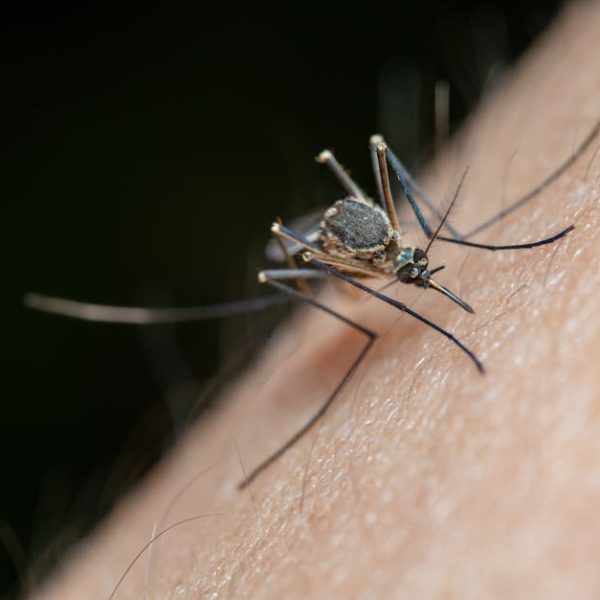Welcome to a world without unwanted ants. Exasperating as they are, these little creatures are quite predictable in their habits and preferences, and by exploiting these, we can devise successful strategies to keep them at bay. This article will guide you through a range of effective solutions to dissuade ants from making your home theirs.
Understanding Ant Behaviors and Preferences
Every combat strategy begins with understanding the opponent, and this holds true for ants as well. Most household ants are seeking two things: food and water. They are especially attracted by the scent of sweet things like sugar, syrup, and fruit, but they will also not hesitate to feast on crumbs, fats, and other food debris.
As they forage, ants leave a trail of pheromones for their colony-mates to follow, gradually leading a marching line right into your kitchen or pantry. Their other preferred areas include damp spaces and cracks, where they can build nests.
Pro Tips: To prevent your home from becoming an ant haven, refraining from leaving food out, regularly cleaning surfaces to remove scent trails and keeping areas especially bathrooms dry and well-ventilated can be a huge deterrent.
Chemical Solutions to Discourage Ants
Chemical repellents and ant killer sprays work like a charm in banishing ants. They usually contain either slow-acting insecticides that poison the entire colony or fast-acting ones that kill on contact.
Commercial chemicals such as Terro Ant Killer and Raid are readily available and proven to be effective. However, these can be toxic to pets and children if mishandled, and overuse can lead to ants developing resistance.
A helpful comparison table could be handy in listing out their ‘pros and cons’:
| Pros | Cons | |
|---|---|---|
| Terro Ant Killer | Effective, convenient to use | Potentially harmful, relatively expensive |
| Raid Ant Spray | Immediate results, wide application range | Temporary solution, toxic |
Natural Ant-Deterring Agents
For those preferring a more eco-friendly approach, several natural substances can do the job. White vinegar, for instance, confuses and deters ants by masking their scent trails. Similarly, cinnamon and peppermint essential oil are known to disrupt their sensory abilities, keeping them at bay.
Pro Tips: Using a mixture of equal parts water and vinegar, and spraying it on entry points can deter ants from visiting. Similarly, a few drops of essential oils on cotton balls, placed near ant trails can be surprisingly effective.
So there you have it! A good understanding of ant behaviors, allying with chemical solutions or opting for nature’s own remedies, can go a long way in keeping these critters outside where they belong. But the war is not won yet! In the following sections, we’ll explore more eclectic but equally effective strategies against ants. Stay tuned!
Homemade Traps as Effective Solutions
If you find yourself in a continuous battle with ants, homemade traps can provide an affordable and creative deterrent. One popular DIY trap involves using a mixture of borax and sugar soaked onto cotton balls. This sweetly lethal treat entices ants who carry the bait back to their colony, which is then poisoned.
Pro Tips: To make a homemade trap, you’ll need borax, sugar, water, cotton balls, and a small container. Mix one part borax with three parts sugar, add water to create a syrup, then soak the cotton balls in it. Place these balls inside the container and leave it near the ants’ travel routes.
Best Practices: Just like chemical solutions, homemade traps involving borax can pose a risk to pets and children, so always place them out of reach. Check the traps regularly and replace them as needed. Don’t forget, cleanliness is your first line of defense—clear away any food source that might distract ants from your trap!
Professional Pest Control Services
If your ant problem escalates to an uncontrollable infestation, engaging professional pest control services might be the right solution. These experts have access to a vast arsenal of chemicals and tools, and the expertise to take on even the toughest of ant colonies.
However, such services can be costly, and the chemicals used may pose risks to health and the environment. It’s crucial to consider the severity of the infestation and weigh up the costs and benefits before choosing this route.
Cost-Benefit Analysis:
| Benefits | Costs | |
|---|---|---|
| Professional Pest Control Services | Hassle-free, Comprehensive, Professional expertise | High cost, Potential health/environmental risk |
| DIY Solutions | Affordable, Control over substances used | More effort required, Effectiveness varies |
Adopting a Clean House Routine to Deter Ants
Ants are natural scavengers and are always on the hunt for food and water. Therefore, a clean house is less likely to attract ants. By maintaining a consistent cleaning routine, you can avoid crumbs and spills that ants would find appealing.
Checklist: Make sure to regularly clean countertops, sweep or vacuum floors, wipe down surfaces, and take out the garbage. Don’t forget the less obvious areas like under kitchen appliances and inside pantry shelves, which can become hot-spots for ants if not regularly checked and cleaned.
Best Practices: Food should always be stored in sealed containers, and any compost or food waste should be immediately taken out. Keeping all areas dry, especially bathrooms and kitchens, reduces the chances of ants seeking water in your home.
Structural Modification to Keep Ants Away
Preventing ants from entering the home in the first place can be accomplished through structural modifications. Regularly inspect your home and look for cracks in walls, windows, or floors. Caulking these areas restricts ants from entering.
Pro Tips: Landscaping can also help to keep ants away. Maintaining a gap between any plant life and your home structure creates a barrier that’s difficult for ants to cross.
Biological Deterrents and Predators
Did you know there are certain creatures that ants naturally avoid? Introducing these biological deterrents is an innovative and eco-friendly approach. For instance, certain types of birds, spiders, and other insects, like beetles and centipedes, prey on ants.
Before opting for this method, consider your comfort with these critters around your home, and any potential unintended effects on the local ecology. Not all natural predators are suitable for every setting, so choose them carefully.
There you have it, a comprehensive set of strategies to declare your home a no-ants zone. Remember, persistence is key. Consistent application of these measures will eventually turn your home into a fortress that ants can no longer infiltrate. Now wave that victory flag and enjoy your ant-free living space!
Key Takeaway:
- Understanding ant behaviours and preferences is key to devising effective strategies for dissuading them from your home.
- Chemical ant repellents can be successful but may be toxic to pets and children if mishandled, and repeated use could lead to resistance.
- Natural solutions are an eco-friendly alternative, with substances like vinegar, cinnamon, and essential oils known to deter ants.
- Homemade traps can be a creative and affordable way to control ant infestations.
- For severe infestations, professional help may be needed. It’s worth considering the costs and potential health/environmental risks before engaging such services.
- A clean and well-maintained house is less likely to attract ants. Regular cleaning and proper food storage can help keep them at bay.
- Structural modifications such as sealing cracks and maintaining dry spaces can prevent ants from entering the home.
- Certain creatures that naturally predate on or deter ants can be used as biological control methods, but care should be taken to consider the possible eco-environmental effects.
Maintaining an ant-free environment may feel like a battle, but with persistence, the victory will be yours. Always remember that maintaining a clean home, making mindful choices about dealing with ants, and understanding their behaviours will aid significantly in keeping your home free from these persistent little creatures.
FAQs
Q: Are there any safety precautions I need to take when using chemical ant repellents?
A: Yes, chemical ant repellents can be toxic if mishandled, so always follow the manufacturer’s instructions for use and storage, and keep them out of the reach of children and pets.
Q: What kind of food attracts ants the most?
A: Ants are especially attracted by the scent of sweet things like sugar, syrup, and fruit but they will also feast on crumbs, fats, and other food debris.
Q: Can landscaping help in keeping ants away?
A: Yes, maintaining a gap between any plant life and your home structure creates a barrier that’s difficult for ants to cross.
Q: What creatures naturally predate on or deter ants?
A: Certain types of birds, spiders, and other insects, like beetles and centipedes, prey on ants and could be used as biological deterrents.
Q: Are homemade traps effective against ant infestations?
A: Homemade traps can be a creative and affordable way to control ant infestations. The effectiveness can vary depending on the type of bait used and the specific ant species present.
Feel free to share this informative article and explore more content on our website about household pests and their management.






